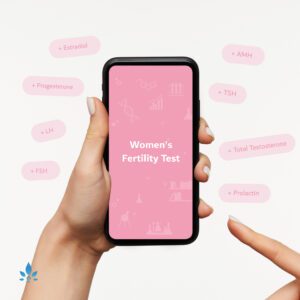Diarrhoea During Your Period: When to see a Doctor


Many women suffer from mild gastrointestinal discomfort during their period. Symptoms can range from cramping pains in the abdomen, to bloating, constipation and diarrhoea. Whilst this can be very unpleasant, usually it is nothing to be concerned about. Diarrhoea and abdominal pain are the two most common gastrointestinal complaints during menstruation.
Why do I get diarrhoea during my period?
Not all women experience gastrointestinal (GI) discomfort during their period; in much the same way that not all women experience period pain, or premenstrual syndrome. It is not clear why some women are more susceptible than others; however, one study has shown that women who experience depression and fatigue during their period are more likely to suffer from GI issues, specifically diarrhoea and bloating. Women who also suffer from dysmenorrhea, or menstrual cramps, are also more likely to suffer from GI-related discomfort.
The levels of prostaglandins, lipid compounds with hormone-like activity, were found to be elevated in endometrial fluid of women with dysmenorrhea. Because symptoms of dysmenorrhea are associated with GI discomfort, it is likely that a shared mechanism is the explanation. Prostaglandins are released just before menstruation starts. Their physiological role is to cause the uterus to contract and shed its thickened lining, which comes away as menstrual blood. These contractions can be painful, giving rise to the uncomfortable cramping associated with period pain.
As well as causing pain, prostaglandins can cause the smooth muscle tissue of the gut to contract, reduce the rate of food absorption and increase electrolyte secretions from the intestines; all of which can contribute to bouts of diarrhoea.
What can I do to minimise the symptoms?
In most cases, the discomfort will ease within a few days, without the need for any medical intervention. It is worth ensuring your diet is healthy and keeping fluid intake up to counteract the excess water loss and avoid dehydration. Consider consuming yogurt with active cultures, unfiltered ‘mother’ cider vinegar, or using probiotics to maintain the balance of healthy bacteria in the gut which can be disturbed with diarrhoea.
In some cases, over-the-counter pain relief, such as paracetamol and non-steroidal anti-inflammatories (NSAIDs) which act to block prostaglandin release, will ease the discomfort. However, those with GI symptoms should be careful with the constumption of NSAIDs as they are known to be associated with GI disturbances.
When should I see a doctor?
If the diarrhoea persists for more than a few days, or if the pain is unbearable, you should seek professional advice as you may have a condition associated with secondary dysmenorrhea, such as endometriosis. If you are becoming dehydrated, your doctor may prescribe an electrolyte solution, to replace what is lost in the stools. Likewise, if you have additional symptoms, such as fever, weight loss or blood in the stool you should consult a doctor immediately. These can all be symptoms of more serious conditions, including enteroinvasive infection, inflammatory bowel disease or cancer.
Nabta is reshaping women’s healthcare. We support women with their personal health journeys, from everyday wellbeing to the uniquely female experiences of fertility, pregnancy, and menopause.
Get in touch if you have any questions about this article or any aspect of women’s health. We’re here for you.
Sources:
- Bernstein, M T, et al. “Gastrointestinal Symptoms before and during Menses in Healthy Women.” BMC Women’s Health, vol. 14, no. 14, 22 Jan. 2014, doi:10.1186/1472-6874-14-14.
- Dajani, E Z, et al. “Prostaglandins and Brain-Gut Axis.” Journal of Physiology and Pharmacology, vol. 54, no. Suppl.4, Dec. 2003, pp. 155–164.
- Greenberger, N J. “Diarrhea.” MSD MANUAL Professional Version, www.msdmanuals.com/professional/gastrointestinal-disorders/symptoms-of-gi-disorders/diarrhea.
- Russell, R I. “Non-Steroidal Anti-Inflammatory Drugs and Gastrointestinal Damage—Problems and Solutions.” Postgraduate Medical Journal, vol. 77, no. 904, 1 Feb. 2001, pp. 82–88., doi:10.1136/pmj.77.904.82.
- “Why You Get Diarrhea, Constipation (or Both) During Your Period.” Cleveland Clinic, 6 Mar. 2018, health.clevelandclinic.org/why-you-get-diarrhea-constipation-or-both-during-your-period/.













































